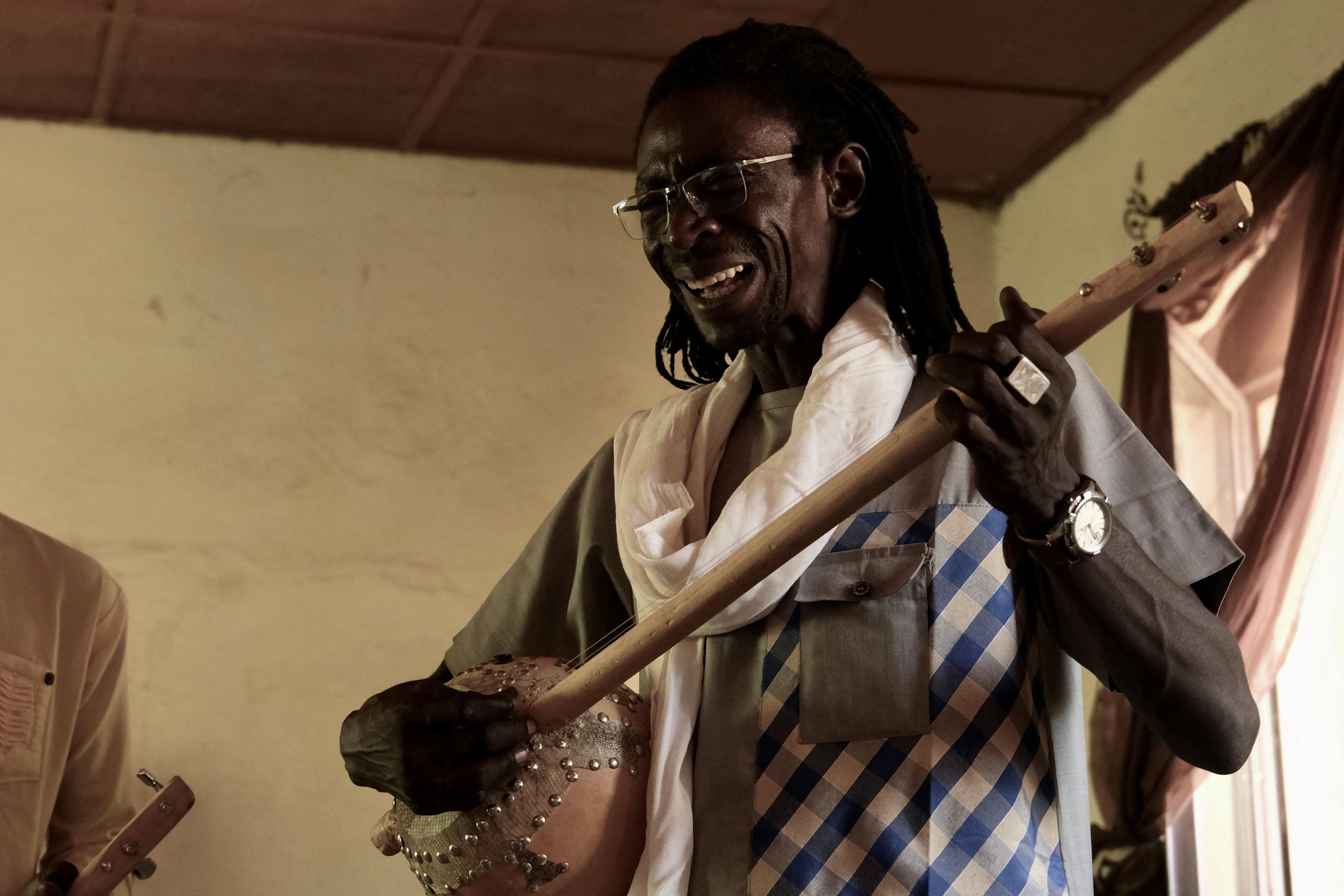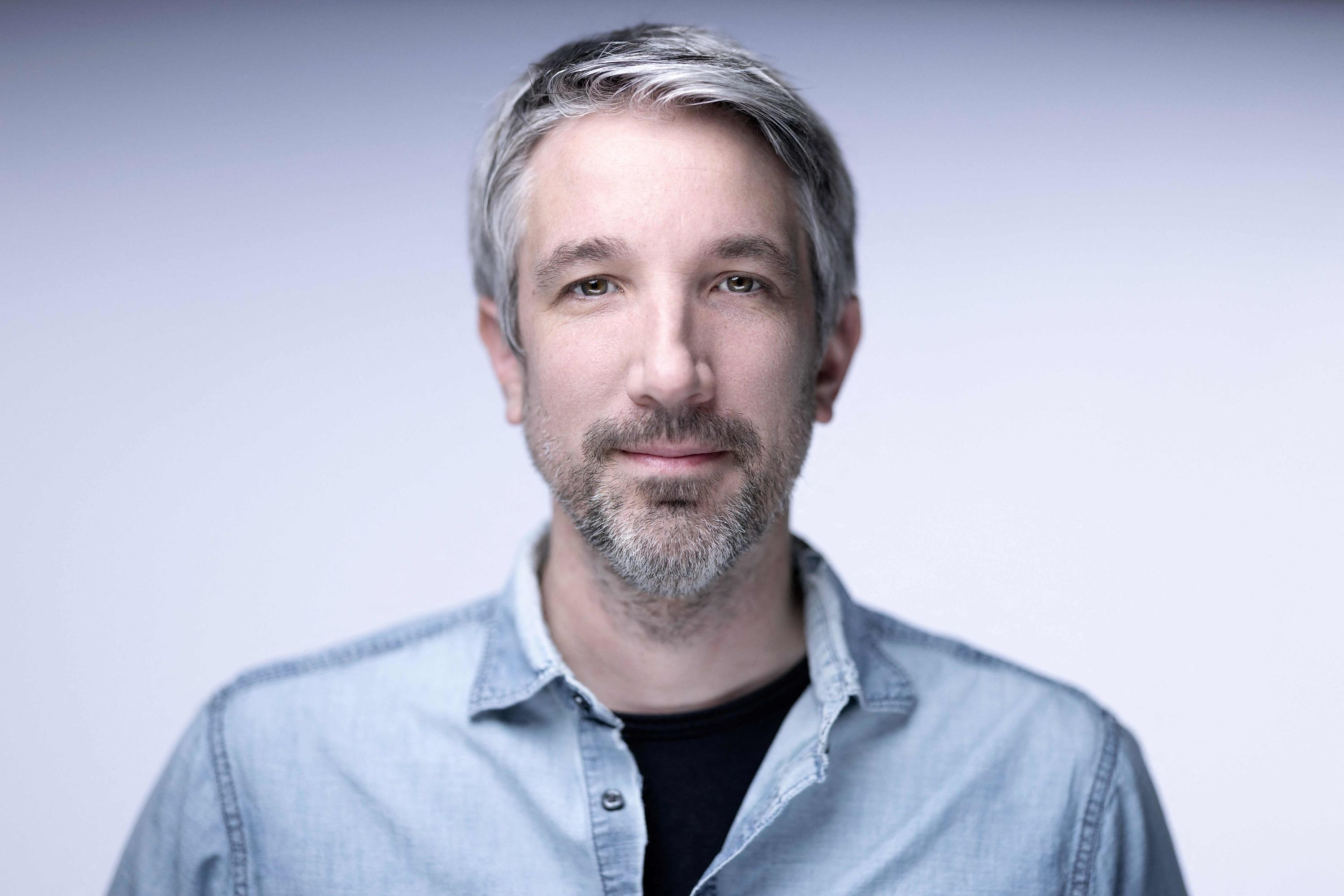From inside a hut plunged into darkness, a succession of low and high blows resonates which punctuate a call in the Hausa language: a Nigerian musician sends a traditional “telegram” struck on a drum.
"You see ? He heard his name!”, rejoices Oumarou Adamou, alias “Maïdouma”, one of the most famous traditional musicians of Niger and grand master of the douma, a percussion typical of Hausa heritage whose frequency he modulates by rotating his foot naked on the goatskin membrane. Few people now understand this coded language. Nigerien youth, in love with rap and electronic music, forget this knowledge.
During a demonstration, Mr. Adamou puts on his sky blue stage boubou and becomes “Maïdouma” again. His eyes light up as he begins to strike his favorite percussions. The “Good luck! Well done ! Long life ! God is big !" punctuate his logorrhea. Ambassador of Nigerien music on stages around the world, Mr. Adamou is now their guardian at the Musical Training and Promotion Center (CFPM), a government institution founded in 1989 in Niamey.
Very few curious people come to visit its “museum”, a round box in a corner of the CFPM where there is a collection of percussion, string and wind instruments, saved from the fire of the national museum in 2011. “Our "traditional musical instruments are threatened with disappearance, today's young people all want to play modern instruments, like the guitar and the drums," laments Mr. Adamou.
If the elite of traditional Nigerian music are still found daily between the ocher buildings of the CFPM, the masters of the douma, kalangou, gouroumi, molo, are becoming old and rare. Their instruments, as well as their rhythms and ancestral meanings, are threatened with disappearing with them.
“How many artists rehearse here? It’s over, they’re all gone,” regrets Yacouba Moumouni, alias “Denké Denké,” famous Fulani singer and master of the flute. The lack of funding thwarts all preservation projects in a country ranked among the poorest in the world where people under 25 make up 70% of the population. Diplomatic tensions between the military authorities in power and several Western partners since the July 26 coup do not bode well for the world of culture, which has long benefited from foreign funding.
Also read: France officially closes its embassy in Niger “until further notice”
But the problem is deeper and the diagnosis made by the deans is unanimous: “impatient” young people prefer to compose on the computer rather than subject themselves to a long, poorly paid apprenticeship. Musical vocations are also thwarted by the rise of a rigorous Islam in this 99% Muslim country. But also by a caste system which reserved the practice of instruments for griots, today victims of a generally unflattering image. “We don’t consider griots like in Mali or Senegal. In Niger, when you are a griot, you are a bit vulgar in society,” explains Mr. Moumouni, whose son is currently the only apprentice.
Unlike its neighbors in Mali or Nigeria, traditional music from Niger has not been able to “open up to other world music” and modernize, believes Mahamane Sani, artist and teacher. Based on this observation, since 2018 he has been organizing workshops for young people from disadvantaged backgrounds, where they learn to play and make traditional instruments. Inseparable activities, because in tradition, “he who plays instruments must be able to make them himself”, underlines this specialist in national music.
A few steps from the instrument museum, in a CFPM classroom, around ten students are learning how to use the gourimi, a stringed instrument of Hausa origin, under his guidance. Covered in a white veil, Aichata Adamou rubs her first strings with caution. “If I manage to sell even just one gouroumi, this workshop will be a benefit for us,” believes the young woman. Some of the students from previous editions have launched a musical career. Others found work in the musical instrument manufacturing and performing arts company, founded by Mahamane Sani.
Beyond finding a job for these young people, it is “about opening their eyes, for them to understand what they can earn, what it means to be a bearer of these ancestral values,” insists this last. A speech that resonates with young people who assert their identity. “We imitate people who are abroad, but we have our own instruments, why not work on them?” asks Oumarou Abourahamane, a young rapper who is participating in the workshop.
Enough to reinforce the unalterable optimism of Oumarou Adamou, who aims to train “young volunteers from all regions of Niger” in 2024 if finances allow it. “Good luck, good work, long life!” “Maïdouma” and its instruments have perhaps not finished chatting.

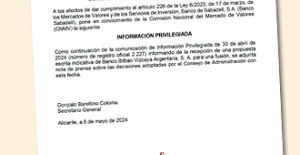 Sabadell rejects the merger with BBVA and will fight to remain alone
Sabadell rejects the merger with BBVA and will fight to remain alone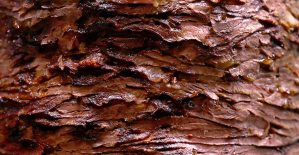 In Germany, the far left wants to cap the price of “doner kebabs”
In Germany, the far left wants to cap the price of “doner kebabs” Israel-Hamas war: Gaza between hope of truce and fear of Israeli offensive in the South
Israel-Hamas war: Gaza between hope of truce and fear of Israeli offensive in the South “Mom, Dad, please don’t die”: in the United States, a nine-year-old child saves the lives of his parents injured in a tornado
“Mom, Dad, please don’t die”: in the United States, a nine-year-old child saves the lives of his parents injured in a tornado The presence of blood in the urine, a warning sign of bladder cancer
The presence of blood in the urine, a warning sign of bladder cancer A baby whose mother smoked during pregnancy will age more quickly
A baby whose mother smoked during pregnancy will age more quickly The euro zone economy grows in April at its best pace in almost a year but inflationary pressure increases
The euro zone economy grows in April at its best pace in almost a year but inflationary pressure increases Children born thanks to PMA do not have more cancers than others
Children born thanks to PMA do not have more cancers than others “House of the Dragon”, “Succession”… Max, the new streaming platform from HBO and Discovery, launched in France on June 11
“House of the Dragon”, “Succession”… Max, the new streaming platform from HBO and Discovery, launched in France on June 11 The A13 motorway will finally reopen this Friday, in one direction only
The A13 motorway will finally reopen this Friday, in one direction only TNT commission of inquiry: tensions between LFI deputies and Macronists before the vote on the report
TNT commission of inquiry: tensions between LFI deputies and Macronists before the vote on the report Apple unveils a new, more efficient iPad range
Apple unveils a new, more efficient iPad range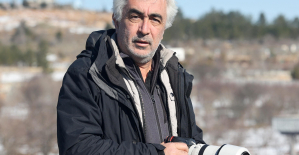 The Gaza War invites itself to the 2024 Pulitzer Prizes
The Gaza War invites itself to the 2024 Pulitzer Prizes Judith Godrèche presents a short film on sexual violence in Cannes
Judith Godrèche presents a short film on sexual violence in Cannes Kevin Spacey: new trial in sight in London for the American actor, for sexual assault
Kevin Spacey: new trial in sight in London for the American actor, for sexual assault Taylor Swift fans make London pub Black Dog their new place of pilgrimage
Taylor Swift fans make London pub Black Dog their new place of pilgrimage Omoda 7, another Chinese car that could be manufactured in Spain
Omoda 7, another Chinese car that could be manufactured in Spain BYD chooses CA Auto Bank as financial partner in Spain
BYD chooses CA Auto Bank as financial partner in Spain Tesla and Baidu sign key agreement to boost development of autonomous driving
Tesla and Baidu sign key agreement to boost development of autonomous driving Skoda Kodiaq 2024: a 'beast' plug-in hybrid SUV
Skoda Kodiaq 2024: a 'beast' plug-in hybrid SUV The home mortgage firm rises 3.8% in February and the average interest moderates to 3.33%
The home mortgage firm rises 3.8% in February and the average interest moderates to 3.33% This is how housing prices have changed in Spain in the last decade
This is how housing prices have changed in Spain in the last decade The home mortgage firm drops 10% in January and interest soars to 3.46%
The home mortgage firm drops 10% in January and interest soars to 3.46% The jewel of the Rocío de Nagüeles urbanization: a dream villa in Marbella
The jewel of the Rocío de Nagüeles urbanization: a dream villa in Marbella Institutions: senators want to restore the accumulation of mandates and put an end to the automatic presence of ex-presidents on the Constitutional Council
Institutions: senators want to restore the accumulation of mandates and put an end to the automatic presence of ex-presidents on the Constitutional Council Europeans: David Lisnard expresses his “essential and vital” support for François-Xavier Bellamy
Europeans: David Lisnard expresses his “essential and vital” support for François-Xavier Bellamy Facing Jordan Bardella, the popularity match turns to Gabriel Attal’s advantage
Facing Jordan Bardella, the popularity match turns to Gabriel Attal’s advantage Europeans: a senior official on the National Rally list
Europeans: a senior official on the National Rally list These French cities that will boycott the World Cup in Qatar
These French cities that will boycott the World Cup in Qatar “The future is for us”: “disappointed” and “proud” at the same time, Al-Khelaïfi sees the glass half full after the elimination of PSG
“The future is for us”: “disappointed” and “proud” at the same time, Al-Khelaïfi sees the glass half full after the elimination of PSG PSG: “Since January, these have not been my best matches,” agrees Zaire-Emery, who promises to “come back stronger”
PSG: “Since January, these have not been my best matches,” agrees Zaire-Emery, who promises to “come back stronger” “What is this question, honestly?” : Nasser Al-Khelaïfi (very) annoyed after PSG-Dortmund
“What is this question, honestly?” : Nasser Al-Khelaïfi (very) annoyed after PSG-Dortmund “I am the guy who has to score the goals”: Mbappé does not hide and assumes responsibility after PSG’s exit
“I am the guy who has to score the goals”: Mbappé does not hide and assumes responsibility after PSG’s exit